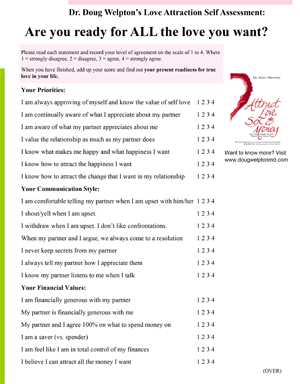Scott and Karen came for counseling. They’ve been married twenty-two years. Scott is a successful businessman who owns his own company. Karen counsels the disabled. She has returned to work full time now that their two children are away in school.
Scott said, “We’re not happy, but we’re not miserable either. We have a harmonious marriage but we’ve lost our spark. I miss our laughing together.”
“How do you each understand the problem?” I asked.
Karen said, “Neither of us likes to argue. I was taught that anger makes you irrational, so you shouldn’t express it. We avoid discussing things.”
“And I don’t want to get angry the way my father did,” said Scott. “He was hurtful to my mother, and I don’t want to hurt Karen.”
“Scott’s tone sometimes frightens me,” responded Karen. “My mother was stern and critical.”
“When you stifle one feeling you stifle them all,” I said. “When you suppress your anger you lose your joy. We can’t suppress just one feeling without suppressing the others.”
“That’s what’s happened,” Scott said. “I thought I could suppress just my anger.”
“We’ve lost our closeness too,” Karen said. I don’t feel as connected to Scott.”
“When you sweep your problems under the rug it does keep the peace,” I said. “But not discussing issues for fear of getting angry has cost your connection.” They both looked sad, like what Thoreau called quiet desperation.
I turned toward Scott. “Do you believe that if you have a good marriage you won’t have differences?” I asked.
“I guess I do,” he responded, “Karen is right that I don’t like to argue. Not arguing was my gauge for having a successful marriage.”
“Conflict between spouses is natural,” I said, “because you’re two different people. If you each stand up for yourselves and your values you’re bound to have conflicts. Trying to be too harmonious can weaken your marriage.” After a pause I said: “The Chinese have a wise saying: two strong people can work out anything.”
“I’m afraid,” Scott responded, “that we’ll end up in lots of arguments with each of us trying to change the other. We both tend to think we’re right.”
“Most of us do,” I said. “How many spouses have you met who thought their partner was right and they were wrong? “ I asked. They laughed. “It requires wisdom to appreciate that your partner’s perceptions and feelings are as valid for them as yours are for you.”
Scott responded, “I have believed my perceptions were right for both of us. I can see now that they’re right for me, but not automatically for Karen.”
“And I keep my ideas to myself to keep the peace,” said Karen. “I’m afraid Scott will think I’m arguing with him, or that I’m trying to show him that I’m smarter than he is.”
“The outcome,” said Scott “is that I end up feeling like I have to do everything.”
“Can you say more about that?” I asked.
“I feel like I have to run the show,” Scott responded. “Like most of the responsibilities fall on me, whether it’s about our finances, our children, or our friendships. I feel like the burden is on me rather than being equally shared.”
“You sound resentful,” I said.
“I am,” Scott replied. “At times I fear I’m going to have a heart attack from trying to do it all.”
Karen had tears in her eyes. “I’m not happy either,” she said. “I feel like I’m not respected by Scott. It’s like he’s the parent and I’m the child.”
“That’s what happens when one spouse regularly defers to the other,” I responded. Instead of an adult-adult relationship you develop a parent-child relationship. The inequality is bad for your marriage. It leads to the kind of anger and resentment you’re both expressing.”
“I don’t understand it,” protested Karen. “I’m not doing anything different from what my mother did with my father.”
“The times have changed,” I replied. “What worked for your parents doesn’t work the same way now. Women in your mother’s generation were taught to go along for the good of the marriage. Women now have become empowered to be equals… To tell the truth,” I continued, “I believe women have always been equals but were taught to act subservient. Women learned to lead from behind, and men often followed from in front.”
Karen smiled. “I know what you mean,” she said. “My mother did run the home but she did it quietly. When my father objected she’d agree with him. She didn’t argue. But she used to tell me: the hand that rocks the cradle rules the world.”
“In your situation,” I said to Karen, “it appears like you give in too readily. By not asserting yourself you end up feeling controlled by Scott.”
“You’re right,” she responded. “I don’t like feeling disrespected by him, like he knows better than I do.”
“And you,” I said to Scott, “feel overburdened and resentful that you’re carrying too much of the load.”
“You hit the nail on the head,” he responded. I know it costs us when Karen doesn’t express her viewpoint. She has valuable things to say. Her perceptions have helped me in my business. But when she doesn’t speak up I end up feeling like we’re not equals.”
I turned to Karen. “Do you feel like you’re equals?” I asked.
“Sometimes I do,” she answered, “but a lot of the time I don’t. I respect Scott because he’s intelligent. He knows a lot. But he’s a bit of a patriarch just like his father.”
“It can’t feel good to see yourself as the child and him as the parent,” I said to Karen.
“It doesn’t,” she responded. “I don’t feel like a child, but I can see when I act submissive instead of speaking my truth it can look like I am….What can I do to change?” she asked.
I replied: “The fastest way to change what you are feeling– whether it’s tense, angry, or hurt– is to breathe. Breathe in peace and breathe out fear when you exhale. Within a few breaths you will change your emotional state. You will be less reactive.”
“What else can we do to change?” asked Scott.
“You need to stop doing so much,” I answered Scott. “Start asking Karen to do what you need her to do. You both need to decide who is responsible for which tasks in a way you both agree is fair. When one of you over-functions and the other under-functions you both lose.”
“I feel like the loser,” Karen said, “because I’m treated like a child who can’t do much.”
“And I feel like I lose,” chimed in Scott, “because I have too much to do.”
“There’s another consequence,” Karen said. “I don’t feel worthy. Instead, I feel inferior like I’m not good enough, or like Scott is better than me.”
“Comparing yourself with Scott is a mistake,” I responded. “The only valid comparison is with yourself—how you are today compared to yesterday.”
“It’s important to me to feel competent,” Scott said,” but I don’t like it when I feel Karen’s not doing her part. Instead of expressing my anger directly to her I withdraw. I put up a wall and feel resentful.”
“Feeling superior can be an even bigger self-esteem problem than feeling inferior,” I said to Scott. “It’s a bigger problem because you often don’t realize you feel superior, and you antagonize your partner when you do. It’s harder to let go of feeling superior. It’s a challenge to appreciate that we’re all equal.”
Scott demurred. “But no two people are born equal,” he said. “We all have advantages and disadvantages, like the families we are born into.”
“It is true that we are not born equal,” I agreed. “But from God’s point of view we are all created equal as human beings. Inequality is a man created problem from the judgments we make.”
“Can you give an example? asked Karen.
“Yes,” I answered her. “When you don’t value yourself enough you buy into the perception that you’re inferior.”
Turning toward Scott I said, “And when you see yourself as superior you provoke Karen and others to want to bring you down to get you off your high horse.”
“What do we do about it?” they asked.
“You each need to take responsibility for your part in the problem,” I replied. “You must work at developing more awareness of when you’re feeling inferior or superior, or when you’re acting like the child or the parent. If you don’t see it you can’t change it. That’s why becoming aware is required.”
Karen asked, “In addition to becoming more aware is there something else I can do?”
I replied: “You must learn to esteem and respect yourself. You must tell yourself you are enough and you matter, that you respect and approve of yourself, and that God–or whatever you call your Higher Power—respects and approves of you unconditionally.”
“I’ve heard about doing this from one of my friends,” Karen said. “Does it really work?”
“For many people it doesn’t,” I answered, “because they give up too quickly. They esteem themselves a few times and think that’s enough. To reinforce this message more effectively you need to look yourself in the eyes in a mirror and repeat these statements out loud. You will know from looking into your eyes and the sound of your own voice whether you believe your statements. You continue with these affirmations until you truly believe them, until you feel them in your heart. It requires repetition like all new learning and it may take months.”
“And what do I need to do?” Scott asked.
Turning toward him I said, “You must let go of your superiority to see yourself as a valuable human being just like everyone else. Thinking you’re superior is a self-esteem problem every bit as much as thinking you’re inferior. Your superiority separates you and drives people away. It can make them dislike or resent you.”
“I hadn’t realized that,” Scott responded. A moment later he asked, “Isn’t there something I can do to help Karen feel better about herself?”
“You will do your part when you respect her and all others as equals,” I said. “It is work we each have to do for ourselves. No one can do it for us no matter how much they care or how hard they try.”
“But doesn’t it help when I tell Karen how I appreciate her and how I value the things she does?” Scott’s voice rose slightly.
“Your appreciation does give her “other” esteem, but that’s not the same as self-esteem. When we count on others to make us feel good about ourselves we are dependent on others. We ride the roller coaster up and down. One day your partner may compliment you, and the next day they may criticize you. Only self-esteem is reliable and will make you stable.”
Scott and Karen vowed to do their homework as we ended our meeting.
Part 2 of this story will follow.


